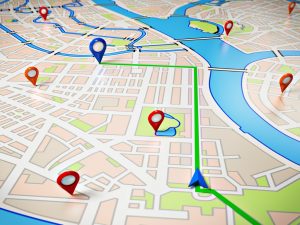 Global Navigation Satellite System (GNSS) signals are constantly in flux with interfering radio signals and ‘spoofing’ (attempts to deceive GPS receivers with false signals). These interferences are a concern for both civilian and military applications that require the utmost accuracy and reliability.
Global Navigation Satellite System (GNSS) signals are constantly in flux with interfering radio signals and ‘spoofing’ (attempts to deceive GPS receivers with false signals). These interferences are a concern for both civilian and military applications that require the utmost accuracy and reliability.
GNSS simulations come into play in these situations, to enable thorough investigation of these erroneous signals and anticipate spoofing attacks in a controlled environment. The need for such methods is paramount in navigation technology, as it consistently involves productivity and the safety of human lives.
Recently, experts have developed Multi RF Output GNSS Simulators to examine and provide solutions to a myriad of signal problems.
All signals in one box
These advanced GNSS simulators are powerful, user-friendly, and accommodate scenarios focused on safety and professional applications.
Multi RF Output Simulators generate GNSS signals such as GPS, GLONASS, Galileo, BeiDou, QZSS, SBAS, and others, enabling detailed interference analysis. All these signal simulations in one machine significantly reduce the need for multiple signal generators and other complex hardware architecture.
Some versions provide multiple RF output combinations connected with a core generator module; this setup allows up to 12 satellite simulations per module. With all these configurations, a user can simulate a multitude of interference scenarios, such as ground networks or formation flying.
Covering all bases for maximum efficiency
The process eventually produces a master RF output, replicating the entire spectrum of all existing GNSS signals and frequencies, all in a single simulation.
The efficiency of the Multi RF Simulator reduces potentially wasted time and resources. Additionally, the system’s capability to reproduce a variety of receiver behaviors and algorithms allow users to identify and mitigate all possible interferences.
All-in-one solutions commonly elicit skepticism and even ridicule. However, the available technology and ingenuity of GPS specialists enable a resource-saving solution that potentially averts disaster, and saves countless lives.








